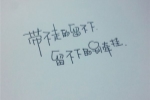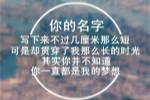
七年级作文英语练习【一】
一. .................................................................................................................................................. 1
二. .................................................................................................................................................. 1
三. .................................................................................................................................................. 2
四. .................................................................................................................................................. 3
五. .................................................................................................................................................. 8
一简述
1. 当过去分词在句末时,不管有无逗号,都是就近修饰名词;
2.现在分词在句末时,无逗号是就近修饰的名词的定语;
3.当现在分词在句尾且前有逗号时,修饰邻近句子的\'主语,做主语的伴随状语或做句子的伴随结果.因此不能用句尾现在分词修饰前面句尾的名词. 所以OG127说C选项:"the phrasehaving been assigned...is uncertain in reference,making the sentence unclear."-->就是说这个现在分词本来是应该修饰前面的employee的,却变成了修饰主语governments了. (另外在GMAT里,having been done的用法错误,应直接用done
避免上述错误的方法:所修饰的名词在句尾用定语从句修饰--OG127正确选项B (而不用加逗号的现在分词修饰.其实分词是定语从句的省略形式,在句中无逗号分词(注意是无逗号的,有逗号的在句中有歧义就比定语从句简洁还有 OG120也是同样道理:修饰句尾名词,正确选项A用定语从句.E选项的句尾现在分词错误.
4.当现在/过去分词在句中且前没有逗号,修饰前面紧邻名词;
5.当现在/过去分词在句中且前后都有逗号,有歧义:1修饰前面紧邻的名词,2向后修饰后面句子的主语.
这种结构在GMAT肯定错,如果修饰某句主语,则避免将该分词置于以名词结尾的句后.避免方式:1用定语从句/介词短语明确修饰对象.2可将分词提到句首,所修饰主语及所在句子紧跟其后-->形成句首分词修饰句子主语.见OG179
6.在前面有多个名词如名词1+介词+名词2结构,而要用分词修饰名词1时,为避免歧义要重复名词1即用同位语结构:名词1+介词+名词2,名词1+分词.见OG208
二.
1、doing/done,SVO 注意分词的逻辑主语与S一致
2、介词/连词+doing/done,SVO 也要注意分词逻辑主语与S一致
3、S,doing/done,V 分词作定语修饰主语(前后一对逗号隔开,相当于定语从句)
注意:如果出现: “名词,doing,名词”,则会有分词前后的修饰歧义,如179DE,245E
4、SVO doing 分词作定语修饰主语,如 96AC,121C,146E,222A,234B,237E
5、SVO,doing
A、分词优先作状语
1)修饰主语(与分词在句首一样,注意逻辑主语),如 33B,39C,44B,120E,163D,256B
2)修饰主句动作,如 78BD,119B,154A,259A
B、其次作定语,但没有定语从句清晰,会有修饰歧义,如 253DE,(“,including”除外 249)
6、SVO done 分词作定语修饰O(同4)
7、SVO,done
A、分词作状语修饰S,如 大全558
B、分词作定语修饰O,如 127A(分词相当于形容词 253A)
some people base on sth是绝对错误的。但是有sb. base sth. on sth.的用法. 三.
1.SVO+doing,无逗号的情况下doing是针对宾语的动作,96AC(OG says : assuring针对主语有问题,121C,146E,222A(OG says: enabling很好的修饰了宾语,234B,237E -------以上证明了ets的偏好,svo+doing修饰主语是模糊的,修饰宾语是清晰的
2.SVO, doing有逗号,33B,39C(Og says:protecting很好的
解释了主语的行为,44B,120E(Og says:错误选项有可能混淆的指代主语而不是逻辑上正确的宾语,163D(Og says:sleeping正确的修饰了主语,256B --------以上证明了在Og中svo,doing的doing多指代主语
3.svo,doing有逗号,78BD(doing指代了前面整个句子的行为,119B(同前,154A(*,259A(同前------------以上证明了Og中svo,doing的doing多指代前面的整个句子
四.例子
产生participle phrases原点是为了to reduce wordiness by replacing longer adverbial or relative clauses,另外要强调的重要讯息不会写成participle phrases,因为分词修饰语属于次等地位(The
modifier is subordinate to the main clause。也就是说A….and B…(A与B一样重要,如果A…V..,B...Ving (就重要性而言A>B
简单一句:分词构句是主要句子的意义延伸。
目前我看到有几种句意:
1. 因果(★★★★★
2. 补述:解释某事(★★★、描述状态并列或伴随(★★、纯举例
participle
phrases如此具困扰性是因为可以改写的来源多
1.由adj. clauses (如who, which开头可改写成分词词组。考题中可分形容词子句限制性、非限制性改分词的考法。
2. 副词子句(有连接词开头的也可改分词词组,所以有因果关系或时间关系,单纯就时间关系看,可以有先后或同时,会有动作是伴随或是并列关系。
3.当三个以上的动词用and相连时,后面的部分也改写成分词(V, Ving... and Ving...。
我看过的说法中,觉得Manhatan GMAT备考网站,里面指导员所讲的分词概念不错,但是他的目的在卖书,所以讲的真的不多。
1.当分词构句放句首,修饰后面句子的主词。前几天看到有人发帖的整理,讲到分词在句首,表示此动作先于主要句子的动作,讲的真好。
2.当分词构句不放在句首时:
if
there's NO COMMA before a participle, then the participle creates an adjective phrase that modifies the noun immediately
preceding.
if
there's a COMMA before a participle, then the participle creates an adverb phrase that modifies the action of the preceding
clause.
PS:逗号的产生可能是插入语,遇到插入语可以跳过不看,不代表分词修饰这个插入语。
判断上抓前句的动词与主词,如果用中文想就是「此主体这个动作的行为导致或表示.....」(to modify the action of。而且不可以只有思考主词或动词。 如果遇到前句有数个动词,以找最近的动词为主,譬如V1 to V2,分词构句修饰V2
3.
participle (V-ing after the comma can not modify the subject of the preceding clause's
noun.
這個考「什么情况下不可以改成分词构句?」除了需要有对等连接词的句子,不可改分词构句,因为句意重要性会被改变外,
打逗号的Ving分词,无法修饰逗号之前的名词,所以非限制的形容词子句最好不要改分词Ving构句(有7個考題,但是Ved分词例外(有两个考题。
七年级作文英语练习【二】
考辅P42
1.IgaveTomthebook.//
2.Heboughthismothersomeflowers.//
3.Thebridgewasbuiltbyworkerslastyear.//
4.Wehavetofinishtheworktoday.//5.Hewilldohishomeworktomorrow.//
6.Wecleantheroomseveryday.//7.Thewriterspent3yearsonthebook.//
8.Itisabookwithalotofbeautifulpictures.//
9.Thebooksoldverywellduringthefirstweek.//firstweek.
10.Marywastheonlyoneintheoffice.//
11.Shefinishedherworkat10o’clock.//Shedidn’12.Shehadtotakeataxihomebecauseitwastoolate.
13.LizaandMikearrivedattheGreatWallintwohours.
14.Theywerehappytogettothetop.//
15.TheyenjoyedthemselvesontheGreatWall.//
16.ThepostmansentSusanandTommyapaperbox.
17.Theyopeneditandfoundapresentfromtheirfriend.
18.Theybothlikedthepresentandfeltveryhappy.
19.Alicedidn’tfeelwelltoday,soshewenttothehospital.
20.Thedoctoraskedhersomequestions.//
21.Thedoctordidn’tgiveheranymedicineintheend.
(全真1)
1.ThecapitalAirporthasbeeninusefor20years.//
2.ThecapitalAirportisthelargestoneinChina.//
3.Ihavenevertakenaplane.MyfriendLiPing,either.//
(全真2)
1.Fathergave$20formetobuysomebooks.//
2.IwasexcitedwhenIsawsomanygoodbooksinthebookstore.
3.ButsomebookswouldcostmorethanIhave.//
ButIdidn’//(全真3)
1.ManyChinesefriendswenttotheparty.2.Tonywasgivenalotofpresentsbyhisfriends.//Tony’
3.SeeinghisChineseteacheratthepartymadeTonyveryhappy.//(全真4)
1.Iwanttoeatsomething.//2.Therefrigeratorisempty.//3.Bobspentfifteenyuanonthehamburger.///(全真5)
1.Mr.Wangdoesn’tworkinthatfactoryanylonger.//
2.Mr.Wanglefthomeearlierinordertocatchthebus.3.Mr.Wangfindsitnoteasytogetalongwiththatyoungguy.//(专家1)
1.Manypeoplewentshoppingyesterday.
2.Janespent4hourstobuyNewyeargifts.//
3.Shewassotiredthatshecouldn’twalkanylonger.//
(专家2)
1.Myfriendssaidtome,“Areyoufree?”
2.Shewantedmetogoshoppingwithher.
3.Shethinksitapleasuretogoshoppingwithafriend.
七年级作文英语练习【三】
(一)改写一般疑问句:
(1)原句中有be动词的,将be动词提前,其他顺序不变。
例如:Thisisacat.变为Isthisacat?
(2)原句中有情态动词的(can/may/shall/would)将情态动词提前,其他顺序不变。例如:Hewouldlikeapie.变为Wouldhelikeapie?
(3)原句中是一般动词的,在句首加助动词do或dose(用于主语是第三人称动词单数的句子),其他顺序不变。例如:Iplaytheguitar.变为Doyouplaytheguitar.
(4)原句中的some变any。
注:以情态动词开头的一般疑问句,并且要求对方做肯定回答的`some不变。
(5)原句中的第一人称改为第二人称。例如:Iamanurse.变为Areyouanurse?
(6)以dose开头的一般疑问句,原来动词的第三人称单数形式要变回原形。例如:Hereadsastorybook.变为Dosehereadastorybook?
(二)改写否定句:
(1)原句中有be动词的,直接在be动词后面加not。例如:Itisadog.→It’snotadog./Itisn’tadog.
(2)原句中有情态动词的,直接在情态动词后加not。
例如:Iwouldlikeahotdog.→Iwouldnotlikeahotdog.
(3)原句中是一般动词的,在一般动词前加don’t或doesn’t(用于主语是第三人称单数的句子),doesn’t后面用原型。例如:Iseethreehamburgers.→Idon’tseethreehamburgers.
原句中的some变any例如:Ihavesomebreadan
dmilk.→Idon’thaveanybreadandmilk.
(4)以let开头的祈使句,如果是letus或letme,直接在其后加not;如果let后面其他人称代词宾格(you、him、her、them、it)就在let后面加助动词don’t。例如:Letusgotothepark.→Letusnotgotothepark.再如:Letthemdohomework.→Don’tletthemdohomework.
(三)对划线部分提问:
对划线部分提问,就是先把一个陈述句的划线部分去掉,然后变为一个特殊疑问句:一是特殊疑问句+一般疑问句;
二是特殊疑问句+陈述句(对主语或主语的定语提问,therebe结构除外)
⑴划线部分是人,用who提问。
⑴划线部分是主语,用who提问,who后面的动词要用第三人称单数形式。如:Whois;Wholikes;Whohas?
方法:who+原句的剩余部分
例如:①HelenandMikearelisteningtomusic.
→Whoislisteningtomusic?
②Ihavesomemodelplanes.
→Whohasanymodelplanes?
⑵划线部分是表语,用who提问。
方法:Who+剩余部分的一般疑问句形式
⑵划线部分是事或者物,用what提问。
方法:what+剩余部分的一般疑问句形式。
注:如果原句是therebe句型,直接用What’s+地点状语来提问。例如:①Wewouldliketobuysomethingsforaparty.
→Whatwouldyouliketobuyforaparty?
②Therearealotofcakesintheplate.
→Whatisintheplate?
⑶划线部分是物主代词或名词所有格,用Whose提问。
方法:⑴划线部分是主语的定语时,Whose+剩余部分
例如:Ourclassroomisbright.
→Whoseclassroomisbright?
⑵划线部分是表语或表语的定语时,Whose+剩余部分的一般疑问句形式例如:①ThewomanisSuYang’steacher.
→Whoseteacheristhewoman?
注:对某部分的定语提问,被修饰的部分跟随特殊疑问句往前提②ThispurseisYangLing’s.
→Whosepurseisthis?
⑷划线部分是地点,用where提问。
方法:where+剩余部分的一般疑问句形式
例如:TheyarehamingaMathslessonintheclassroom..
→WherearetheyhavingaMathslesson?
⑸划线部分是“多少”,用howmany或howmuch提问。
方法:⑴句中是可数名词的用Howmany+剩余部分的一般疑问句形式例如:Therearefifteentreesintheplayground.
→Howmanytreesarethereintheplayground?
⑵句中是不可数名词的用Howmuch+剩余部分的一般疑问句形式例如:Ihaveaglassofjuiceforbreakfast.
→Howmuchjuicedoyouhaveforbreakfast?
⑹划线部分是时间,用when或whattime(具体的几时几分)提问。方法:⑴when+剩余部分的一般疑问句形式
例如:SuYangandSuHaiareathomeonSundaymorning.
→WhenareSuYangandSuHaiathome?
⑵问具体的时间直接用Whattimeisit?或What’sthetime?问
例如:It’sthreeforty-five.
→Whattimeisit?或What’sthetime?
七年级作文英语练习【四】
非谓语动词系列训练(二)
一:在句子意思不变的情况下用分词或不定式改写下列句子:
1.When he saw from the top of the mountain, he viewed a beautiful city.
-----___________from the top of the mountain, he viewed a beautiful city.(用分词
2.When it was seen from the of the mountain, the city looks like a garden. (用分词 ------_____________from the of the mountain, the city looks like a garden. city. (用分词
3.When he was asked why he went there, he said he was sent there to be trained for a space flight.
-------When ________ why he went there, he said he was sent there to be trained for a space flight. (用分词
4. Do you know the boy who knows Japanese?
----- Do you know the boy ___________ Japanese? (用分词
5. Do you know the boy who is called Tom.
---- Do you know the boy ________Tom.- (用分词
6. This is the man who organized the activity.
This is the man________________ the activity. (用分词
7. He followed his students and came in.
------ He came in, ____________ his students(用分词
8. He came in and was followed by his students
----- He came in ,____________by his students(用分词
9.The woman who was dressed in a blue skirt delivered a speech to us.
---- The woman _____________ in a blue skirt delivered a speech to us. (用分词
10. Because he is a physicist, he could well explained how to do the research.
---- _______ a physicist, he could well explained how to do the research. (用分词
11. He was born on the 18th of January, 1979 in Taiwan, and he was raised by his mother and was shy and quiet during his childhood.
----- ____________on the 18th of January, 1979 in Taiwan, and he was raised by his mother and was shy and quiet during his childhood. (用分词
12. The flowers his friend gave him will die unless it is watered every day.
---The flowers his friend gave him will die unless ____________ every day. (用分词
13.When we were walking dogs, we came across a famous professor.
------ When ____________ dogs, we came across a famous professor. (用分词
14. He donated over 10 billion dollars in order that he could sponsor education, culture, sports, and public welfare in the earth-stricken area.
----- He donated over 10 billion dollars _____________education, culture, sports, and public welfare in the earth-stricken area.(用不定式
15 After he had finished his homework, he played the piano.
----- ____________ his homework, he played the piano.
16. After the bridge had been completed, it went through a hard time because of the bad weather.
----______________________, it went through a hard time because of the bad weather.
17 It is said that Bell invented the telephone.
18. Bell is said __________ the telephone. (用不定式
19. I don’t decide what I should do.
I don’t decide what__________(用不定式
20. It happened that he had been invited
---- He happened _____________
21.He was so young that he could not go to school. He was too young __________ to school.
22. When the test was finished, we began our holiday.
----- The test __________, we began our holiday.(用独立主格结构
23. As time goes by ,he becoms aware of it.
With time ________ by, he becomes aware of the significant of it.
24. The moon, which travels round the earth once every month, is a natural satellite of the earth.
---- The moon, ___________ round the earth once every month, is a natural satellite of the earth.
25. Though he had been told several times, he didn’t understand me.
-----_______ several times, he didn’t understand me.
26. After the problem was solved,he took a rest.
----With the problem ____________, he took a rest.
27. If time permits, we will
28.He lay there, his hand clenched, his eyes looking straight up.
---He lay there, his hand_______, his eyes looking straight up
29.I once read a book called Man, Woman and Child, which enabled me to understand the love in a family.
------I once read a book called Man, Woman and Child, ______________ me to understand the love in a family. (用分词
30.There are many places of interest, among which is the Yunji mountain,whose scenery is very beautiful, which attracts lots of tourists from different places every year.
------There are many places of interest, among which is the Yunji mountain,whose scenery is very beautiful, ____________ lots of tourists from different places every year. (用分词
二:非谓语动词完成句子练习
there was no doctor available. (only
, playing cards at home or taking a walk in the park? (spend
. (think
包括三名儿童). (child
5. 根据他的话判断), he did well in his exam. (judge
the Tang Dynasty. (date
7. This is an article (由五部分组成)five parts. (consist
five parts.(make
as soon as possible. (solve
bored a lot of fans to death. (concern
, l cannot object to your marriage. (concern
子)at school? (keep)
(躲在木箱里)behind the door. (hide
,we had to walk home last night. (be.
in the broad daylight yesterday. (rob
(满是脚印). (mark
(石油价格上涨), the economy of that country is slowing down. (go
18. When the national flag is being hoisted, all the students stand at attention, . (fix
him, I decided to write again. (hear
20. He doesn’t seem to mind by others. (make
next week is of great importance. (hold
is very important. (hold
is of great importance. (hold
the Third World. (belong
(致力于研究), the professor paid little attention to his surroundings. (devote
in the morning. (come
(为了确保那孩子尽快康复),five doctors took turns looking after him day and night. (ensure
,the old man struggled to his feet. (help
, the parents were taken to the dining room. (show)
(.support)
. (drop)
, I am not familiar with this kill. (tell
(为了不被注意)by others . (notice
三:合并下列句子
1. The annual school sports meeting was held yesterday. It presented a marvelous opening ceremony.
__________________________________________________________________________________________________________________________________
2. After the opening ceremony, we sat in the base of our class. We waited patiently for the beginning of the race.
_____________________________________________________________________________________________________________________
3. Some of my classmates work very hard, and they hope to fulfill their dream. __________________________________________________________________________________________________________________________________
4..My friend Christine took part in the 800-meter race. She had received training many times, so she kept calm before the race. After 400 meters, though she looked tired, she still tried her best to run. We screamed and beat the drum when we saw she passed by. She won the medal, and we were proud of it. (把短文中的从句或并列句改成非谓语动词
____________________________________________________________________________________________________________________________________________________________________________________________________________________________
______________________________________________________________________________________________________________
四:语篇填空 用所给动词的适当形式填空。(一)
Freud was one of the first scientists [1]_________(make)serious research of the mind. The mind is the collection of activities [2]_________(base) in the brain that involve how we act, think, feel and reason. He used long talks with patients and the study of dreams [3]___________(search) for the causes of mental and emotional problems. He also tried hypnosis(催眠. He wanted to see if [4]________(put)patients into a sleep-like condition would help ease
[5]________(trouble) minds. In most cases he found the effects only temporary. Freud worked hard, although what he did might sound easy. His method involved [6]________ (sit with his patients and [7]________(listen)to them talk. He had them [8]________(talk)about whatever they were thinking. All ideas, thoughts and anything that entered their mind had to
[9]___________(express). There could be no[10]________(hold)back because of fear or guilt. 基础写作 :最近,你就读的学校——广东实验中学高中部将举办开放日。 你将作为学校的
学生代表向前来参观的英语老师介绍高中校区的基本情况,请准备好你的解说词,文章的开头和结尾已为你写好。(学会用非谓语动词表达)
?位置交通:位于广州市西部,荔湾区;出行便利,步行到地铁站约10分钟。 ?学校历史:逾120年的悠久历史;现高中校区于2004年 竣工并投入使用。 ?校园环境:占地面积约125,000平方米;植物繁茂,绿树成荫,环境优美。 ?校园设施:课室宽敞明亮,配备齐全;拥有标准运动 设施,
其中综合体育馆可用于举办比赛、会议和典礼。
?师生情况:目前学生约3000人,教师约200人;全体师生正在
为学校更美好的明天共同奋斗。
?【写作要求】
?只能用5个句子表达全部内容。?【评分标准】 ?句子结构准确,信息内容完整,篇章结构连贯。
Good morning, teachers! Welcome to Guangdong Experimental High School!.....
__________________________________________________________________________________________________________________________________________________________________________________________________________________________________________________________________________________________________________________________________________________________________________________________________________________________________________________________________________________________________________________________________________________________________________________________________________________________________________________________________________________________________________________________
非谓语动词练习答案
1.Seeing 2.Seen (原句有误,请改成When it was seen from the top of the mountain,the city is beautiful (用分词 3. asked 4. knowing 5. called 6. organizing 7. following 8. followed 9. dressed 10. Being 11. Born 12. watered 13. walking 14. to sponsor 15. Having finished 16. Having been completed 17 18.. to have invented
19.to do 20. to have been invited 21. to go 22 finished 23. going 24. travelling 25. Having been toldTold 26. solved 27.permitting 28. clenched 29.enabling 30. attracting
二:非谓语动词完成句子练习
Keys:
1. only to be told (that 2. to spend your spare/free time
3. thinking about 4. including three children/ three children included
5. Judging from / by his words/what he said
6. dating back to/from (which dates back to/from
7. consisting of / which consists of
8. made up of/which is made up of 9. to solve the problem
10. concerning the football match 11. As/So far as I am concerned
12. (in keeping five children 13. hidden in a wooden box
14. There being no bus 15. to have been robbed
16. Seen from the top of 17. Seeing from the top of
18. To see 19. marked with footprints
20. the price of oil going up 21. fixed on/upon the national flag
22. with (both his hands tied 23. Not having heard from
24. (his being made fun of 25. to be held
七年级作文英语练习【五】
①庭院的上空是一架纵纵横横的葡萄藤。A初春时节,昏睡的葡萄藤醒了,它们先是睁开一粒粒紫红色看似惺忪的叶芽。不久,叶子便很快毛茸茸地伸展开了。它们很快就把庭院里的阳光剪得支离破碎斑斑驳驳,不半月,院子的上空就一片摇曳的苍翠,连一片金黄阳光也漏不下来。B清风徐徐地一摇,几片碎碎的阳光偶尔从叶缝间掉落下来,但那是稍纵即逝的,像梦的碎片一样。
②我是十分喜爱这些张张扬扬的葡萄叶子的。清晨推窗一望,绿叶田田,满眼碧绿的饱满苍翠,让人感觉到了新一天的爽朗和清新。
③暮秋时节,满藤的叶子都已枯黄了,飒飒秋风一吹,便不停有三三两两的`叶子从藤架上飘飘扬扬地凋落下来,落在庭院里、墙角和台阶上,像一只只再也不能飞的蝴蝶。这时,素爱清爽的妻子便不得不时时清扫那些落叶。但那落叶总像扫不尽似的,往往清晨刚刚扫过,但中午或傍晚时就又落了厚厚一层,有时一天扫了五遍,但还总是扫不净,仿佛你一转身它就又落下了。
④妻子也想了许多的办法,费尽了周折,院子里却落叶依旧,这让妻子又气恼又无奈。这情景往往一直要到落雪时才能结束。
⑤去年的中秋,满架的葡萄又变紫了。剪摘葡萄时,妻子不是挑紫透的先摘,把那些没有熟透的葡萄串子留着,而是一次全早早摘了,不论有没有熟透,摘得一串不留。妻子说,葡萄摘尽了,叶子落得就快,就不用像往年那样总是扫叶子了。
⑥果如妻子所说的那样,葡萄摘下后三四天,满架的叶子一下子就黄了,然后开始汹涌地凋落,一夜的工夫,庭院里就落了厚厚的一层,那些叶子显得十分憔悴,有的叶脉还青着,只是叶缘黄卷了一些,但却早早地凋落了。
⑦不到半月,葡萄藤上的叶子竟全落尽了,只剩下那些灰黑的老藤和那些褐色的新条在庭院上空寂寂地缱绻着。偶尔飞来三两只鸟雀,怔怔地栖落在上面,然后啁啾几声就怏怏地飞走了。
⑧难道作物也有它们自己的灵魂吗?它们在泥土和风雨中生长,它们萌芽、抽叶、开花,全都是为了自己的果实,果实是它们生命的灯芯,一旦果实夭折了,它们的生命也就夭折了;一旦果实夭折了,它们的岁月也就黯淡了,无论这世界还有多么美好,无论岁月还有多么漫长,但它们却已走到了自己生命的秋天里。
⑨果实或许就是作物们的梦想,或许就是作物们生命的纯粹使命,或许就是作物们的灵魂,过早丢失了自己的果实,作物们生命的秋天就提前来临了。
⑩坐在静静的葡萄架下,仰望那一簇一簇摇曳的绿叶,我对一切都充满了敬意,无论是生命的,还是被我们视为非生命的,无论是一粒青青的葡萄,还是我们脚下的一粒泥土……
⑾一切都是有着自己的梦想和灵魂的。
1.联系上文,第⑦段中“偶尔飞来三两只鸟雀,怔怔地栖落在上面,然后啁啾几声就怏怏地飞走了。”一句中加点字的妙处。(4分)答:
2.本文语言优美,韵味悠长,请从第①段划线句中的A、B两句中任选一句加以赏析。(4分)选句序号()
赏析:
3.文中第⑩段中写到“我对一切都充满了敬意”,请结合上下文谈谈“我”充满了怎样的“敬意”。(4分)答:
4.你是否赞同文中“妻子”摘尽所有葡萄,让叶子尽快落完的做法,请说明理由(5分),见解深刻独到,语言简洁流畅,最多可加工2分)答:











